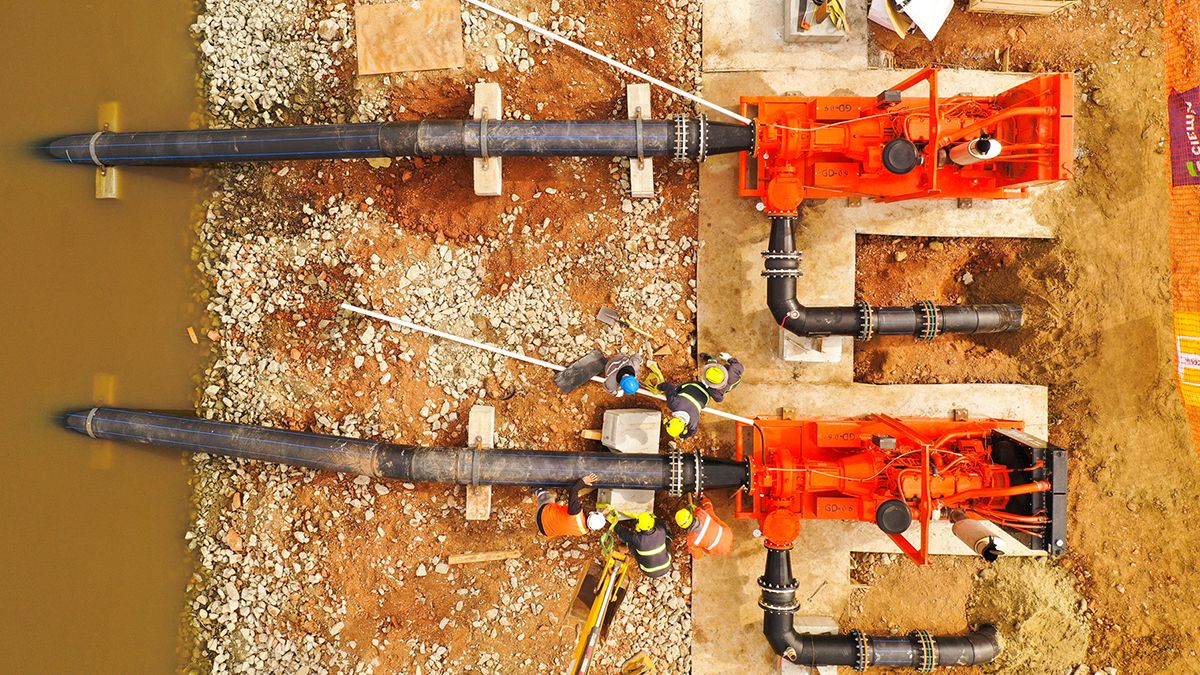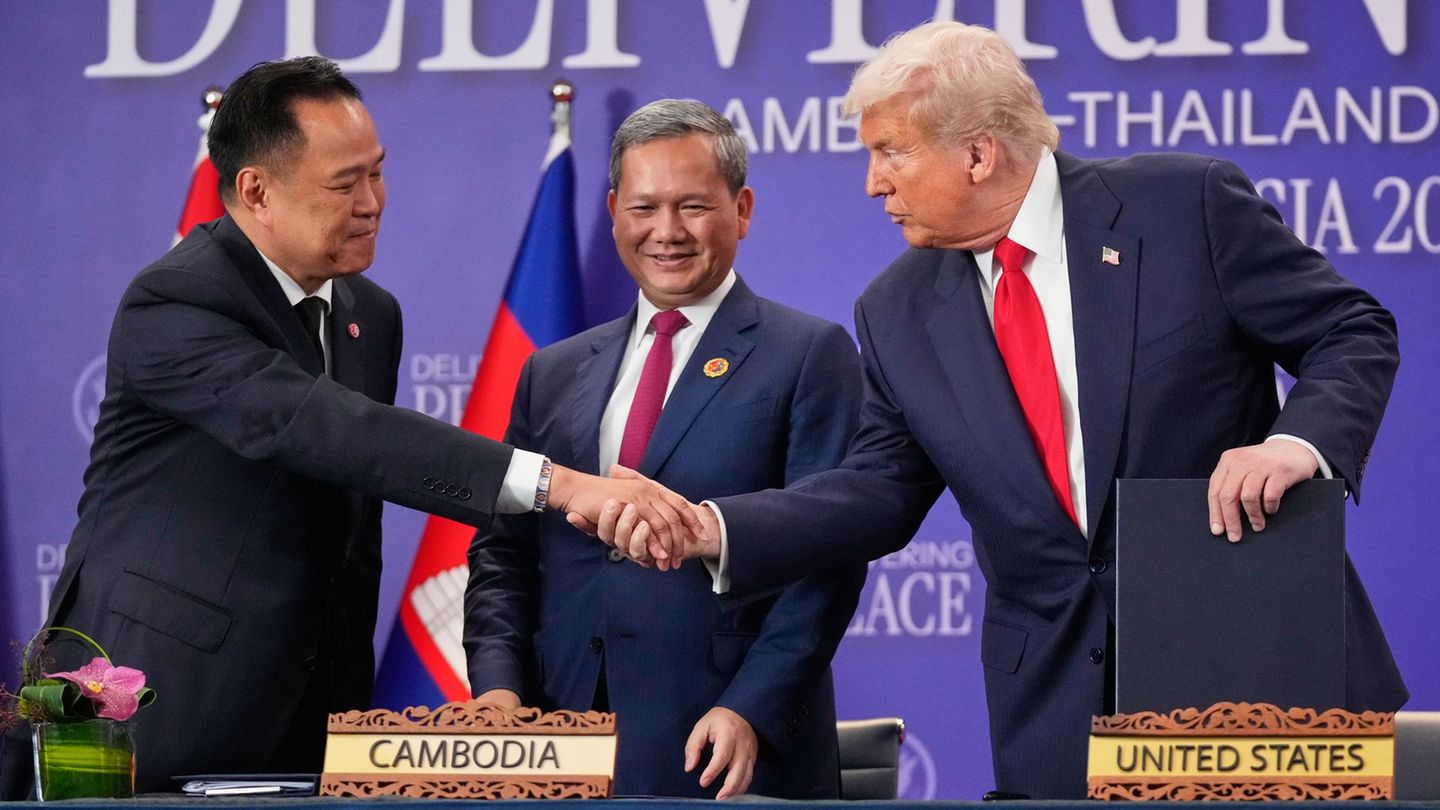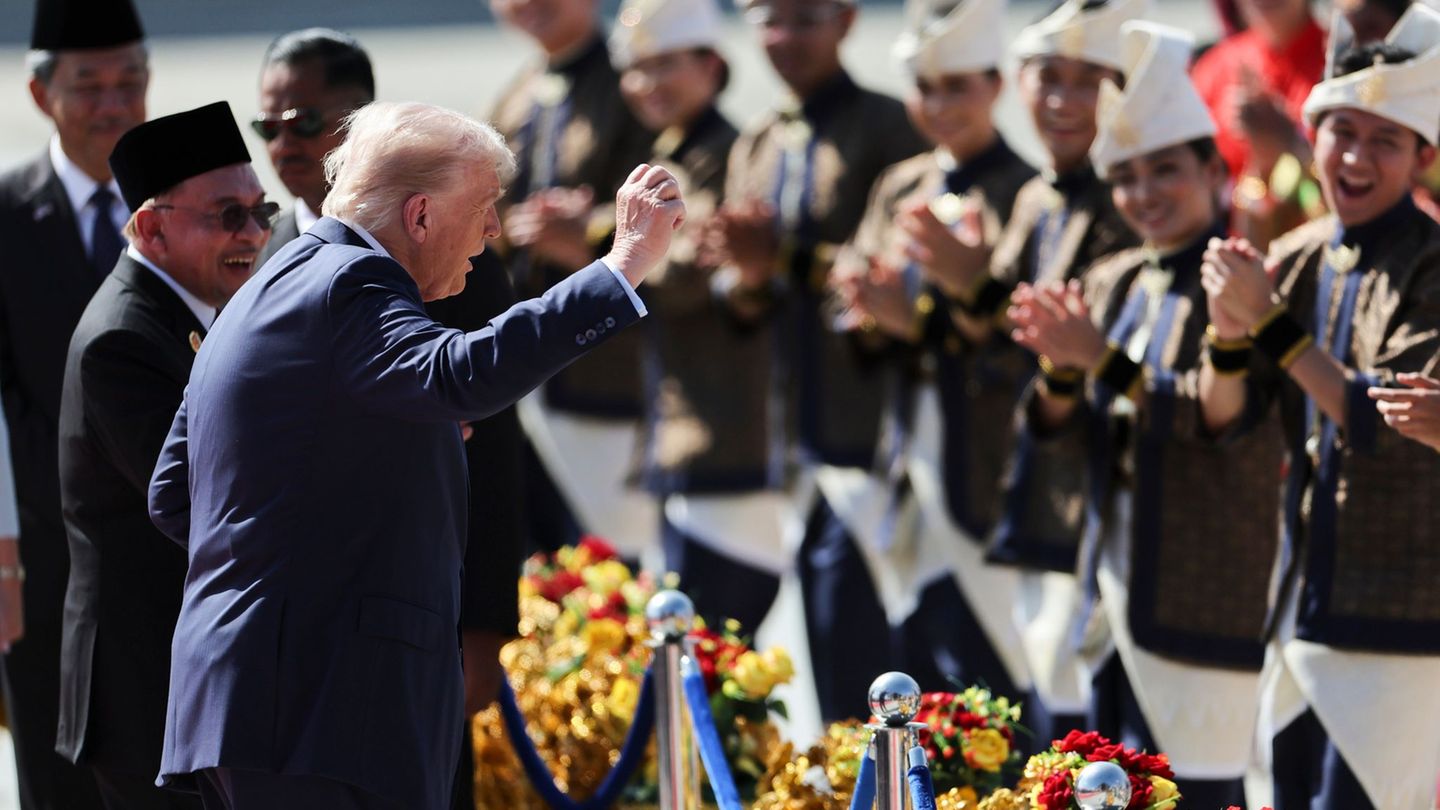The representative of the National Party (PN) and current Undersecretary of the Environment, Gerardo Amarillastated at the beginning of the event that “Uruguay “We take special care of the quality of the soil,” but at the same time “the most vulnerable element that we have as countries at this level is water.” “Despite the abundance that we have in the region and, especially, in the country of fresh water throughout the territory, we clearly have a vulnerability “We have seen this recently with the shortage and the quality. It is an issue that has been going on since the beginning of the century, which has caused a great deal of concern in our country,” said the official.
Amarilla claimed what he considered some of the achievements of his administration in this area. “In this period we will reach 50 to 72% coverage of sanitation and wastewater treatment and the idea is for the period to come to approximately 90% of the entire urban interior making it a matter of equity, as well as Montevideo “Now it is here, the rest of the urban area also has access to this service,” he said.
Another topic handled by Amarilla is the one linked to water supply. “We propose comprehensive and collective solutions for producers, especially in the interior, we are talking about the issue of irrigation, which Uruguay cannot sustain the level of production and the productive result is not achieved without a good irrigation plan and that will be our main objective for the coming period,” he said.
For his part, representing the Broad Front (FA), the former national director of the Environment Alexander Narius He put on the table the path taken by the country since the constitutional reform that led to a water lawwhich allowed the consolidation, he said, of a national policy on the issue.
“We need to reinforce this work. The time has come to implement these plans United Nations and for that, it is clear that a great national agreement is needed. We propose a great dialogue on water, we are convinced that this is necessary. It is true that the Executive Branch has the role of leadership, but if these constructions do not have a strong support from the actors involved in all their investments, it is difficult for them to last over time,” said Nario, establishing the proposal for dialogue as central, an aspect that was well received by the other members of the table.
“We cannot continue to oscillate from crisis to crisis. There is a quality crisis, measures are being taken for quality, there is a quantity crisis, measures are being taken for quantity. We have to look at it as a whole,” he insisted.
For her part, the current vice president of the FA and biologist, Veronica Pineirohe added along the same lines that “in times of making profound decisions to address crises, many times there is a desire to avoid assuming political costs and that leads to perhaps deepening the crises. So this dialogue also contributes and within the framework of being able to think of a State policy around what is the common good, which is water.”
Piñeiro added that it is a priority to “have a clear direction of where we want to go, a plan that goes beyond possible changes in government, to think more in that sense as a country and obviously build social and political agreements with all the actors to be able to move towards that.”
From the Colorado Party (PC) the engineer Andres Saizarcurrent advisor to the Minister of the Environment, Robert Bouvierreferred to the phenomenon of the last major drought that affected the country and framed it in a “water deficit, a deficit of precipitation, which unusually lasted three years.” “There have been droughts much more severe than those of recent years, but of one year. It is a change of the climate variability”.
In this regard, the ministerial advisor proposed working on the concept of “uncertainty management”. “The first thing we have to do is have good information about what is happening to us. Then we have to start working on contingent measures. Uruguay “They were done on the fly and they worked well. Water with a higher sodium chlorine content than usual was put in, the networks were kept running, and the sanitary situation was resolved. To generate that certainty, we must begin to take additional measures,” he said.
The role of OSE and its investments, under debate
The place it occupies in management OSE (State Water Works) was present in the debate, with some nuances.
The Colorado representative stated that “OSE is an organization that is dedicated to building infrastructure and not to manage their business.” “An example of this are the projects to reduce non-potable water, everyone knows that the company has a significant proportion of the water it purifies that it does not charge for. There are several reasons for this, there are some that are physical losses, that is, water that is lost because the pipes are old or because they are broken. There is water that is simply not billed for due to micro-measurement errors and there is also water that is stolen,” denounced the engineer who concluded with this statement: “OSE needs to rethink itself.”
Gerardo Amarilla joined the proposal. “OSE deserves strong support from the State in general, with a significant boost in recapitalization. We assume that we have to give it financial support so that it does not have the excuse of lack of resources to make investments and extend the fulfillment of its services,” he said.
He also referred to the project to build a water intake in the area of the Arazati beach in the department of Saint Joseph which also includes a water treatment plant, an aspect that has caused controversy among other things due to the participation of private parties. He defined it as fundamental because “it will not only provide water intake from another source other than Saint Luciabut another strengthened plant now that is not minor and another independent pumping line that already has running water.”
From the Broad Front, its representatives Piñeiro and Nario questioned this investment again and mentioned the possible dam in the area of Casupá in Florida as a more viable alternative.
The director of the Uruguayan Alliance for Water, Mauro de la Vegathe event’s organizer, summarized in dialogue with Scope the breadth of political representatives’ positions. “What we are seeking is to create a link with the public sector so that in the future government we can see how we can collaborate from the private sector, in addition to putting the issue on the agenda. We want the drought not to be left as something forgotten, as something that happened and that did not happen again.”
“Water is an issue that is not a priority for many, but for others it is. And what happened a year ago and this year with the floods makes us rethink what we can do to help,” concluded the spokesperson for the organization.
Source: Ambito




